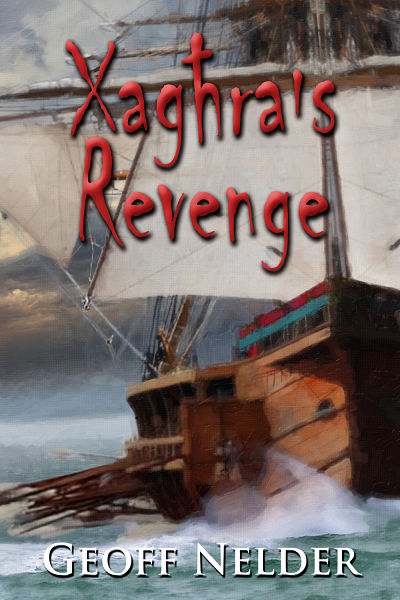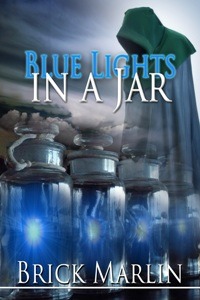
OBIR: Occasional Biased and Ignorant Reviews reflecting this reader’s opinion.

Pulp Literature Magazine #36 Autumn 2022
Published by Pulp Literature Press, Langley, British Columbia, Canada, Summer 2022.
Managing Editor: Jennifer Landels, Senior Editor: Melanie Anastasiou, Acquisitions Editor: Genevieve Wynand, Poetry Editors: Daniel Cowper & Emily Osborne, Assistant Editors: Brooklyn Hook, Veronika Kos, & Melisa Gruger.
Cover art: Butterfly Witch – by Melissa Mary Duncan
Old Gifts – by James Sallis
Premise:
If mom was a superhero, do her kids inherit her powers?
Review:
Mom passed away when the siblings were young. They grew up with a costume hung in a closet, dad’s reminiscences, and puzzled expectations. What would happen when they got older, and would it happen to both of them?
An extended, or perhaps I should say comprehensive, metaphor for growing up. Parents, intentionally or not, weave a sort of magical vision of what life will have to offer once the kids are grown up. In time children become young adults and learn something of what life is really all about, though often, through bitter experience, discarding the bulk of the magical vision they had once believed in and hoped for. And yet, sometimes enough remains to make life worth living.
In this story the premise is treated seriously, with results both mixed and appropriate to the problem. Lesson to be learned? Take what life throws at you and cope. This be a gentle lesson with a fairy tale ambience. Call it a modern fable in cynical times. Encouraging and optimistic without being naïve. Useful realism. I like it.
Feature Interview with James Sallis
Review:
A number of interesting points made for beginning writers to bear in mind. Among them, James stresses that stubbornness is an important trait for writers to possess. Without it, one tends to give up, which is something a writer should never do.
And what strikes me even more, James prefers the editing process to the original draft creation. Seems to offer him a greater sense of accomplishment, perhaps because crafting tentative concepts toward clarity is, he implies, far more satisfying than merely daydreaming the idea in the first place. I haven’t quite mastered that view yet. I hope I will eventually.
Pretty Lies: I Can See for Miles – (Chapters 21-25) by Mel Anastasiou
Premise:
“…summer of 1974 on Bowen Island, B.C… Jenny Riley searches for re-entry into the ghost world to bring back her dead lover… Jenny’s search is increasingly threatened by the ghost of Moira…”
Review:
I’m not fond of serialized stories or novellas, if only because my memory is poor and I experience difficulty remembering what came before the current batch of chapters I happen to be reading. For this reason, I will focus on individual scenes rather than treat the book as a whole.
Quite a surreal sequence, this one. Jenny finds Joey in the afterlife and tries to get him to agree to go back to the real world with her. Trouble is, she can’t tell what’s real and what’s not. Their interaction is one revelation after another, none of them providing any answers. Jenny feels her grasp of reality slipping away, her ability to think increasingly disjointed, increasingly desperate. This is not how she envisioned rescuing Joey from the underworld. What to do?
The sequence constitutes a masterful exercise in interior monologue clarifying character and creating tension. Most of the action takes place inside the heads of the two characters trapped in a situation neither seems to understand. Apart from some “actual” violence, most of the tumult and fury is the product of the two characters’ thoughts and rationalizations. An impression of impending doom is overpowering. It’s like reading a Greek tragedy, the more you read the more intensely one feels the emotions stirred. To the level of a cathartic experience as was the intent of the ancient plays? Ah, for that to discover you’ll need to read the chapters yet to come. It’s called “hooking the reader.” Done supremely well.
Ambience – by Jason P Burnham
Premise:
How to take advantage of a zombie apocalypse.
Review:
Never occurred to me you could. But if you have a passionate obsession which the destruction of humanity spills into your lap in abundance then, yeah, go for it. Lots can go wrong, but, in the meantime, if you’re both clever and lucky, lots can go right. Probably the most reassuring and optimistic zombie story you will ever read. Strikes me as highly original.
Can-on-a-String – by Alex Kitt
Premise:
Two sisters who can’t stand one another move into their uncle’s home to help him deal with Alzheimer’s.
Review:
No science fiction or fantasy elements that I can detect, though bear in mind my taste in such is as old-fashioned as I am. To someone my age, as prone as I am to worry about the prospect of Alzheimer’s beginning to manifest itself in my cognitive abilities or lack of them, this is a horror story dealing with a subject I prefer not to think about.
However, this story isn’t about the uncle and his decline, it’s focused on the aimless whirl of life in which both sisters feel helpless and the victim of forces beyond their control. It’s not only the current situation which has imprisoned them, but a lifetime of bad memories which they can’t seem to avoid obsessing about. When inhibited and restricted by both past and present, what can the future offer? Nothing. Life is like that for a lot of people.
In their case the two sisters attend an aggression therapy workshop. For a brief moment I hoped it would be a class on how to be successfully aggressive but no, it’s purpose is to enable attendees to understand and cope with their lashing-out instincts. They are blindfolded and handed an empty can acting as a receiver/speaker for a telephone line made of string, and suddenly they are in contact with an unknown member of the group and expected to blurt out their innermost thoughts. Something akin to the act of confession, I suppose, though not being Catholic, I’ve never gone through that experience, so I don’t know if the comparison is apt.
I’ve been told, by someone in a position to know, that the most horrifying aspect of being in a Federal prison is the mandatory participation in classes of this ilk in which prisoners, devoted to acting as tough as possible in order not to show any weakness and risk being savaged by the pack, are expected to reveal their innermost doubts and fears as part of a “healing” process. Normally, the inmates retreat further into their psychic armour and simply spout whatever cliches they think will please the do-gooder authorities. Trouble is, the latter understand this full well, and are experts at probing at chinks in the armour. For the prisoners, this is a form of torture worse than a beating.
Therein lies the horror of this tale. The process of self-revelation is supposed to help you. But not if it proves fatal. You might achieve a life-rewarding epiphany, or wind up attempting to contain an explosion of conflicting emotions within your skull, something it isn’t designed to do.
Perhaps a majority of the readers can easily identify with the one sister who is the point-of-view protagonist. Is not life a daily battle with internal self-help therapy sessions? We all have a stake in finding out how this story resolves. Our rationalizations and delusions depend on finding answers. Confessing to oneself can only go so far. Learning out how other people wake up and smell the coffee may provide the missing needful insight. And if others fail, well that’s good to know, too. Always useful to learn what path not to follow.
An absorbing tale that held my morbid interest all the way through. More confirmation that it doesn’t pay to think too much. Something we all need to be reminded of from time to time. This story I find psychologically sound and quite gripping.
Oeufs Dangereux – by Pete Barnstrom
Premise:
Stealing eggs from a pterodactyl nest is not as easy as it sounds.
Review:
Hard to describe without giving away too much. Something of a shaggy dog story. Its conclusion
I would describe as a deft summation of a popular and much-hated aspect of French culture. I would call this story light, comic, original, and entertaining. But then you anticipated as much from reading its title, didn’t you?
Adrift off the Shore of Alzheimer Island – by Cheryl Skory Suma
Premise:
The mood of the situation.
Review:
A prose poem which captures what might go through the mind of an Alzheimer’s victim, the thoughts, the struggle to remember, to comprehend, and so on. The images mostly capture the feelings involved.
I’ve always had a poor memory. I tend to think of the Alzheimer’s disease mental state as a normal mind with bigger and bigger memory gaps as time goes on. Of course, the decline is far more insidious and complicated than that. Those that truly understand are no longer capable of explaining what it is like. In that sense it will always remain a mystery.
Still, this brief tale leaves me with the impression there are moments when the victim is in the moment and content. I am reminded of my experience with a family member who, at one prolonged stage in the disease, greatly enjoyed reading even though everything read was forgotten as soon as it was read. The context of in-the-moment had shrunk to an infinitesimal point in time, yet the mood of peace and contentment was longer lasting.
So, yes, the feeling of helplessness must be overwhelming to those who struggle against their diminishing capacity to think. And yet, as this story implies, it is not necessarily a downward spiral of unrelieved horror. There are moments…
Definitely a psychological horror story, especially to those who fear the onslaught of Alzheimer’s as they age, but at the same time, a bit of balm, a calming note, almost a reassurance. Nobody really knows, but a touch of dignity and self-worth might be among the longest-lasting traces of a former personality. I like to think so, anyway. This prose poem gives me cause to hope. I am thankful for that.
Caught Dead – by Shawn K Bird
Premise:
Who knew zombies could be social misfits?
Review:
Among themselves, I mean. Turns out there’s a natural hierarchy based on age and level of decay. Isabella is so fresh in the grave that when she claws her way out her brain functions normally. Hence her frustration attempting to get to know her new companions. They’re not as fresh, not as keen.
To make matters worse, It seems the zombie army has been summoned from their graves by person or persons unknown without explanation or instruction. There’s no decorum or sense of etiquette at all. They’re being manipulated. Most improper.
Uppermost in Isabella’s thoughts, what will the neighbours say? She finds out. She feels a trifle outraged. After all, she didn’t die just to be humiliated. She already knew life isn’t fair. Hadn’t expected to learn death was the same way. Bad deal.
Fortunately, all is not lost. Isabelle learns to adopt proactive tactics. Not bad, for a zombie.
This story is a lot of fun. I greatly enjoyed reading it.
The Dump-’em Dog – by Anna Zumbro
Premise:
Is a robot dog a better pet than a real dog?
Review:
Robots can be programmed in ways natural selection never thought of. Some day multi-million-dollar industries will depend on this. I find this prospect annoying. As I find the dog in this story annoying. As does the character Alicia.
The dog is a gift designed to help Alicia weather an awkward social occasion. She resents it. But of course, it perseveres. That’s its function. Since the ability of the human race to screw up personal interaction is likely to be a permanent feature of our species, could it be that high tech robots will make life easier? Desperate futurist minds want to know.
This is a curiously charming tale of frustration with what I suspect may well prove in the near future to be a perfectly plausible ending. In that sense, a predictive work of science fiction as well as an entertaining story. Some day it may be cited as such.
Most SF is a form of fantasy, but not this one. Even at 71, I may well live long enough to see it come true, even though I’d prefer not to. All the same, an interesting, light-hearted story. I just happen to dislike the implications, but then, I am something of a curmudgeon. So, never mind.
Once Upon a Time in Camelot – by GD Litke
SiWC (Surrey International Writers Conference 2021) Contest Winner
Premise:
What if someone tried to assassinate the King in Camelot?
Review:
Young people may not be aware that the Whitehouse in the Kennedy Administration was referred to as Camelot. Jackie and Kennedy were so popular they were treated like fairy tale
royals. This was after he recovered from the failed Bay of Pigs invasion he had inherited from the previous administration, and before his extensive womanizing became public knowledge (the press knew all about it but kept quiet to protect his reputation—modern politicians long for those days). Of course, all the same many people hated him. But you couldn’t tell from the press or media coverage in Ottawa. I vividly remember walking home from grade school shortly after the news of the shooting was announced and noting that every adult I passed was in tears. Never witnessed that before or since. It wasn’t just him they were crying for, but the end of an age of innocence, the end of modern, enlightened progress. Maybe the future wasn’t going to be so great after all. It may have marked the beginning of modern cynicism, at least in journalism. Bear in mind I’m riffing off a little kid’s point of view.
Anyway, in this story Jason is a troublesome teenager who has been kicked out of school for fighting. His father, who works at the nightclub owned by Jack Ruby, gets Jason a job working at the book depository under Lee Harvey Oswald. Now, is that a set-up or is that a set-up? I couldn’t wait to find out what happens.
Could be many of the current generation don’t get the above references. For my generation the Kennedy assassination is one of the most important events taking place in our lifetime. Not only is every aspect intimately familiar, people are still arguing about it. As if the identity of the assassin is still important or relevant. It isn’t. The historical ramifications of the event worked out long ago. I mean, in France some people with nothing better to do are still arguing over whether Napoleon was a great man or an evil man in terms of what he did or did not accomplish. Doesn’t matter. He’s dead. His goals are obsolete. The world has moved on. Same with Kennedy. The “truth,” were it to be revealed, is just a footnote. Personally, I think Oswald did it on his own—but that’s of no significance. Not anymore.
But, remembering this historical event, I was keen to see how the author handled the set-up. Rather well, I believe. The story comes out at least as plausible as many of the theories the “cult” of the event has spawned. I might argue there are some police procedure loose ends with implications for the fate of Jason, but that’s in keeping with actual event. It’s a very clever weaving together of fictional facts with known facts. I’m impressed. No wonder it was the SiWC winner. Topical and entertaining, at least for my generation.
The Magpie Awards for Poetry
Griefbody – (Winner) by Cara Waterfall
Premise:
Winter explains the griefbody.
Review:
I assumed “Griefbody” is a obsolete English term but apparently not. Possibly it is original to Cara. The setting of the poem feels like it was written a couple of centuries ago. Delightful poem.
Harvest – (First runner-up) by Cara Waterfall
Premise:
Thoughts of Vincent Van Gogh.
Review:
Landscape interpretation from a painter’s point of view. Clearly painting is a form of poetry and vice versa.
Big German Dialect Word Clankingly Inserted Here!
– (Second runner-up) by Kevin Spenst
Premise:
A Mennonite suffers from unjust historical associations.
Review:
An exercise in irony? The Mennonites were conscientious objectors, first in Germany, then Russia, and finally in North America. Still, they are often swept up in the latest round of jokes about Germans. Not easy growing up with such a burden. Insight into a misunderstood sect sometimes condemned for ethnicity. Prejudice is ubiquitous, it seems. An important poem.
Forgive my Delay – (Graphic art) by Mikael Lopez and Enrico Orlandi
Premise:
Two women rock stars share a dream. Then one leaves.
Review:
A tale about longing for the perfection of a past relationship unexpectedly ended. Could there be anything perfect about the loss? An answer is provided. A gentle, reflective account of what once was. Worthy of contemplation.
I detect a slight Manga influence in the treatment of eyes, and possibly a Moebius influence in depicting landscapes. Overall there’s an emphasis on purity of line, nothing busy or textured. The lack of colour is an exercise in chiaroscuro wedded to a spare style which somehow allows emotion from the text to dominate. Visually quiet but meaningful and attractive.
Hmm. Does the above indicate I could be an art critic? I doubt it.
The Shepherdess: Grandmère Paris – by JM Landels
Premise:
In 17th century France, the ex-shepherdess Toinette travels to Paris to find out why and how her Mistress, Madame la Comtesse, has disappeared.
Review:
Again, a serialized tale of which I preserve only hazy notions of what has passed in earlier chapters. But, as a historical tale, the sheer amount of research revealed in the extensive, confident details renders events and characters thoroughly credible. Immersing oneself in this fictional reality is like jumping into a time machine and witnessing the past. Nothing detracts from the ambience of the story. Everything seems authentic.
Consequently, even though I have scant interest in the era described, I am enjoying reading “The Shepherdess.” It is flat-out a genuine historical novel and a good one. You might say, against my greater interests, I am beginning to possess an understanding of the machinations and shenanigans of French society back in the day. And why not? The book is highly entertaining.
CONCLUSION:
Excellent issue of Pulp Literature with a wide variety of interesting stuff. Very sophisticated, the lot of it. Not always an easy read, but definitely worth reading.
Check it out at: < Pulp Literature 36 >
Source: Auto Draft










